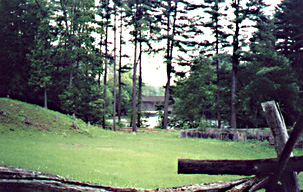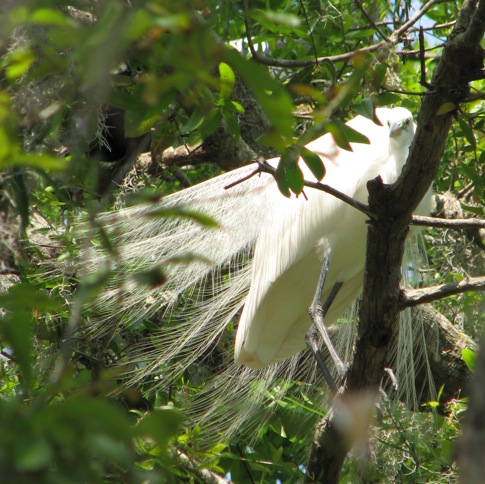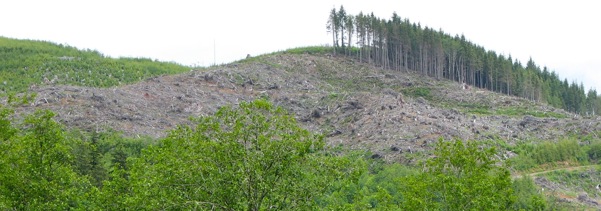"Out of hand, sight, and mind?"
by
Joseph Siry
"Out of hand, sight, and mind?"
by
Joseph Siry
We
have no time for nature. Natural
experiences for contemporary people require too much from us to learn from our
brief exposure to the elements. Few if any of us derive our living directly
from the land, the seas, or the air. These tangible constituents of nature’s
assemblage are removed from our hands to the extent that we do not acquire
our wealth from the fruit of natural conditions we have no real
conception of what it takes to coax wealth from the land.
We do not encounter the ever present conditions imposed on actual places by
climate, soil, water and sunlight. We avoid the harsh realities of temperature,
isolation and exposure. Instead nature, when we do
see it, emerges from the backgrounds of commercial advertising sets only frequently
enough  to
distort our ideas. Entering into our conscious experience these advertisements
influence us to imagine nature as a holy
grail of ecologically oriented tourism without ever becoming something we
have to work for, work at, or work with. All the time we are working within
natural limits, whether we appreciate these constraints
or seek to ignore them, we cannot avoid
them.
to
distort our ideas. Entering into our conscious experience these advertisements
influence us to imagine nature as a holy
grail of ecologically oriented tourism without ever becoming something we
have to work for, work at, or work with. All the time we are working within
natural limits, whether we appreciate these constraints
or seek to ignore them, we cannot avoid
them.
Reduced to an urge to recreate outdoors the nature many of us now experience is denuded of meaning. We don’t handle the soil in the same way that the hands of the gatherers or the planter's hands experience the unpredictable conditions of nature. We do not handle the wild dirt of decomposing life. Nor do we smell the fresh product of decay from which the phoenix of life springs eternally emerging if we allow it into our experience to renew and refresh our moral imaginations and enrich our shallow lives. Underexposed to nature we fail to imprint on the living tissue that sustains our creative impulses. Unsure of what we experience we become less sure of who we are and what our role in nature ought to be given our gifts.
Without
the direction afforded us by the feel of earthly existence and the taste of
unproductive natural encounters, we in our impoverished experience create a
poverty of imagery with which to express our deepest visions of this enormously
wild planet. Lost in the commercialism of our culture, nature also becomes an
obstacle to our enjoyment of comfort, an intrusion into the convenience we crave
and an amorphous threat to our quest for a "clean well lighted place." When
all the world was overwhelmingly wild it was good to behave in a manner that
insulated us from the capricious organic order of feast and famine. Today when
70% of the world’s people experience urban settings as their primary habitat
the exclusion of nature from our instruction in the ways of the world imbalances
our creative experience in favor of confusion, fragmentation
and discontinuity. 
Because we shield ourselves from the earth’s actual character, as it becomes distant from us, we grow apart and are now separated by comfort, convenience and cleanliness from the lessons of the natural conditions of physical existence. Instead of a smelling, moving, and engaging presence nature has become a cultural icon and we have lost the ancient wisdom gained from direct exposure to the organic order and essential quality of our earthly existence. Whether viewed as a mother goddess or unrelenting mistress the earth we are changing due to our behavior is no longer so close to us that we can accurately interpret its responses to our impacts. Separated by sensory experience we become emotionally deadened to nature’s elemental signals. Even though we are products of the essential organic evolution of living beings on earth we can no longer articulate in our language the order inherent in native settings imbued with the active ancient ingredients of earth, air and water. We confuse wild things with the exotic settings we create using but not fathoming the deeper knowledge of plants, animals, fungi in sustaining the integrity of places.
For our human ancestors, both before and after the agricultural revolution, nature remained an immediate presence. As wild or agrarian landscapes natural features influenced the way people responded to their physical surroundings and to one another. It was obvious to everyone that nature requires toil, sweat, frustration and perseverance in the face of an overwhelmingly powerful counter-force to human demands. Nature’s overwhelming capacity to dwarf our accomplishments remains but we have changed our concepts of its limitations and boundaries.
In
exchange for torturous efforts to coax a living from the soil, or rivers, or
forests, nature may or may not reward human exertion. Without this lesson of
reward and punishment nature can not shape our experience. Because we seek to
avoid the pain and sweat of exposure to the discomforting qualities of nature
we insulate ourselves from the very crucible of existence. The compost of experience
wears thin and is unable to enrich our imaginations upon which moral and sensible
growth depends. Our interior lives reflect the tailored experiences we have
made for ourselves coddled as we are by our handy appliances. In our air conditioned,
electrified and sanitized dwellings we lurk amidst the machinery of every day
leisure enslaved by our desire for easy success. Like the exquisitely landscaped
exteriors that package our physical existence in pre-measured, controllable and
repetitive doses our interior reflections of nature are neither clear nor convincing.
We confuse the cosmetic effect of nature with its therapeutic affect. Even our
language incorporates a growing dyslexia brought on by the confusion of the
imagery with the actual physical conditions of creation.
 Ours
is an addiction to instant gratification. What does not immediately entertain
us surpasses our ability to respond creatively to life, love and labor. Consequently
the indoor terrarium or hanging plant, like the outdoor golf course or highway
median strip confines our experience of organic creation to recognizable fragments.
Nature becomes another of the replaceable components in the entertainment complex
that passes for the substance of our lives. Much like a nursery packages topsoil
in plastic bags and plants in plastic pots our efficiently electronic world
simulates a nature that we can no longer have, no longer grasp and no longer
even recognize.
Ours
is an addiction to instant gratification. What does not immediately entertain
us surpasses our ability to respond creatively to life, love and labor. Consequently
the indoor terrarium or hanging plant, like the outdoor golf course or highway
median strip confines our experience of organic creation to recognizable fragments.
Nature becomes another of the replaceable components in the entertainment complex
that passes for the substance of our lives. Much like a nursery packages topsoil
in plastic bags and plants in plastic pots our efficiently electronic world
simulates a nature that we can no longer have, no longer grasp and no longer
even recognize.
What passes for understanding is instead a delusive preoccupation with analyzing nature’s infinitely reducible pieces instead of comprehending the seamless web of relations that infuses souls and places with a genius of a common coevolving coexistence. As the complexity of the world eludes the imaginativeness of our creative expression there is a nagging feeling that we are underestimating the fabric of material existence. Lurking just beyond the boundaries of our pervasive ignorance of natural things is the physical realities of atoms, molecules, cells and membranes that carry out the miracle of transformation and growth that characterize the ecological order and evolutionary essence of life.
Unbeknownst to our self satisfied mind, nature nourishes and embellishes the world that we in our culture have sought so long to possess and control. Though nature eludes our grasping appetite for fun, relaxation and health, physical existence dynamically responds to human impacts. By secluding ourselves in the comfort of conventional ideas about nature’s beauty we deceive ourselves by mistaking meaningful natural encounters with our drive by trekking through drive in parks. Lost in a fog of superficial images we are nonetheless surrounded by nature although we mistake its meaning. This cocoon of comfort, convenience, and control seals out wild things the way suburban lawns seclude us from any disquieting wildlife.
 Our
inharmonious relation to the world is not a blend of human artifact and naturally
evolving contexts that enrich one another. Nature has not died for us merely
because we fill the air with noise and excess heat, or because we fill the night
sky with obliterating toxins and lights. Wild things are not dying solely because
we build roads into primeval sanctuaries crafted over the centuries by unseen
microbes, insects and fungi. No, nature is dead to us in our culture and our
lives because we have adopted an inadequate measure
of our ethical commitment to the world characterized by the phrase, "no sweat."
We are a society whose mantra is "no problem" and thus we perceive no harm done
by our personal actions to either others or our natural surroundings. In place
of an ethical dimension to our lives we have adopted a "guiltless gourmet" approach
to consumption so that our blind destructiveness becomes soothing to the senses.
We are unable to learn the lessons of physical existence that holds this earth
orbiting about the sun and revolving daily as if to some circadian rhythm of
the galactic deep.
Our
inharmonious relation to the world is not a blend of human artifact and naturally
evolving contexts that enrich one another. Nature has not died for us merely
because we fill the air with noise and excess heat, or because we fill the night
sky with obliterating toxins and lights. Wild things are not dying solely because
we build roads into primeval sanctuaries crafted over the centuries by unseen
microbes, insects and fungi. No, nature is dead to us in our culture and our
lives because we have adopted an inadequate measure
of our ethical commitment to the world characterized by the phrase, "no sweat."
We are a society whose mantra is "no problem" and thus we perceive no harm done
by our personal actions to either others or our natural surroundings. In place
of an ethical dimension to our lives we have adopted a "guiltless gourmet" approach
to consumption so that our blind destructiveness becomes soothing to the senses.
We are unable to learn the lessons of physical existence that holds this earth
orbiting about the sun and revolving daily as if to some circadian rhythm of
the galactic deep.
Unconsciously removed by our thoughts from the actual give and take of experience, nature denied becomes an irrelevant irritant in our busy lives. Sleepwalking we pass from the post industrial illusion of autonomy into autism with respect to our capacity to express nuances in reality. Deluded we think we can recapture our healthy relation to the sweaty, putrid, pest infested, wild world we have fought so hard to subdue and master. We have lost our nerve yet a certain nervousness pervades our speech. We seek to raise our consciousness by having a "wilderness experience." We forget that you can raise corn, or cows, or forests but you can’t "raise consciousness" in the same way. You can grow vegetables but you can’t "grow the economy." We confuse the metaphors that examine nature with the words that describe our behavior because we have no gage by which to measure our isolation from existence.
Together we shiver in the cold distances that separate our individual lives from one another. In bite sized, freeze-dried packets the world awaits our action of "just adding water" to instantly bring dead nature back to life. Deceiving others as we fool ourselves we are dying in proportion to the distance we create between nature and our experiences. Withdrawn, sullen and cool, we ingest the barbiturate of amusement and sip the cool drink of amnesia all the while yearning to save a natural world we can no longer recognize, realize or revitalize.
Index to topics on Nature | schedule | Home | Atlas | site-map | articles
Science Index | Analysis | Population Index | Global Warming Index |Research sites.